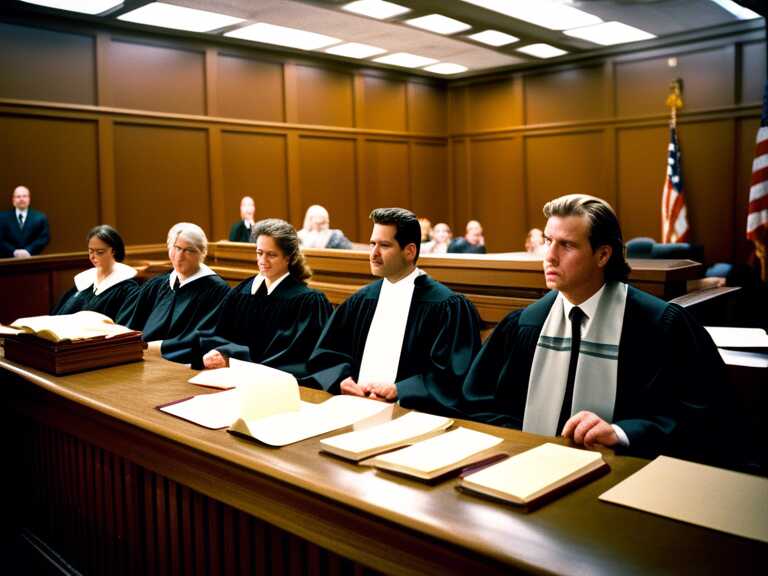
Nebraska Supreme Court to Rule on Voting Rights of Felons Amid Controversy and Lawsuit
Nebraska's top election official's rejection of felony voters' registrations sparks ACLU lawsuit; state Supreme Court to determine law's constitutionality before election.

In Nebraska, a legal battle has emerged over the voting rights of individuals with felony convictions, triggering a clash between the state's Secretary of State and the American Civil Liberties Union (ACLU). The controversy hinges on Secretary of State Bob Evnen's directive to county election officials, urging them to reject the voter registrations of those with felony convictions. The ACLU contends that this directive is unconstitutional, overstepping Evnen's jurisdiction and violating legal precedent.
Legal Authority and Jurisdiction
The ACLU asserts that Secretary of State Bob Evnen overstepped his legal authority by unilaterally declaring the state's felony voting rights law unconstitutional. This law, as per the ACLU's position, cannot be nullified by a single official's directive and can only be deemed unconstitutional by the Nebraska Supreme Court. This contention raises questions about the scope of the Secretary of State's powers and the limits of executive authority in matters of electoral law.
The ACLU's Legal Challenge
In response to Evnen's directive, the ACLU initiated legal proceedings on behalf of three Nebraska residents with political affiliations across the spectrum: a Democrat, a Republican, and an independent. The lawsuit argues that Evnen's directive unlawfully denies these individuals and others with felony convictions the right to vote in the upcoming election. The ACLU's push for a direct appeal to the Nebraska Supreme Court underscores the urgency of the matter, given its impending impact on the November election.
Potential Impact on Voter Disenfranchisement
The ACLU has highlighted the potential disenfranchisement of over 7,000 Nebraska residents as a consequence of Evnen's directive. This figure represents a significant number of individuals, many of whom reside in politically pivotal areas such as Omaha's 2nd Congressional District. The implications of this disenfranchisement extend beyond the right to vote; they could influence the outcomes of critical races, including the presidential and congressional elections.
Constitutional and Legal Implications
At the center of this legal conflict lies the question of constitutional adherence and legislative authority. Evnen's directive, which followed the passage of a law restoring voting rights to individuals who have completed their felony sentences, has sparked a debate about the constitutional separation of powers. The Secretary of State's refusal to implement a law enacted by the Legislature raises concerns about the balance of power among the state's branches.
The Role of the Nebraska Supreme Court
The Nebraska Supreme Court has been thrust into the spotlight as it grapples with the request for a writ of mandamus from the ACLU and the broader constitutional implications of the case. While the court is being asked to compel Evnen's compliance with existing laws, it is also faced with the task of assessing the constitutionality of the legislation in question. The high court's ruling, anticipated before the voter registration deadline for the November election, holds significant weight in determining the fate of the state's electoral landscape.
Implications for Future Elections
The outcome of this legal battle carries implications not only for the upcoming election but also for the broader trajectory of voting rights for individuals with felony convictions in Nebraska. The ACLU's legal challenge and the subsequent court ruling will set a precedent for how such cases are handled in the future. The contention over the constitutionality of the law restoring voting rights to individuals with felony convictions underscores the evolving discourse around enfranchisement and the exercise of democratic rights.
The Political Dimensions
Beyond the legal intricacies, the dispute encapsulates broader political dynamics within Nebraska. The participation of various political figures, including Secretary of State Bob Evnen, Attorney General Mike Hilgers, and former Secretary of State John Gale, reflects the multifaceted nature of the issue. The political affiliations of these individuals add another layer of complexity to the case, with potential implications for the state's electoral politics and partisanship.
As the legal battle unfolds, the spotlight remains on the Nebraska Supreme Court, tasked with navigating the constitutional, legal, and political intricacies of the case. The resolution of this dispute will have far-reaching consequences for the voting rights of individuals with felony convictions in Nebraska, shaping the state's electoral landscape for years to come.
Share news















